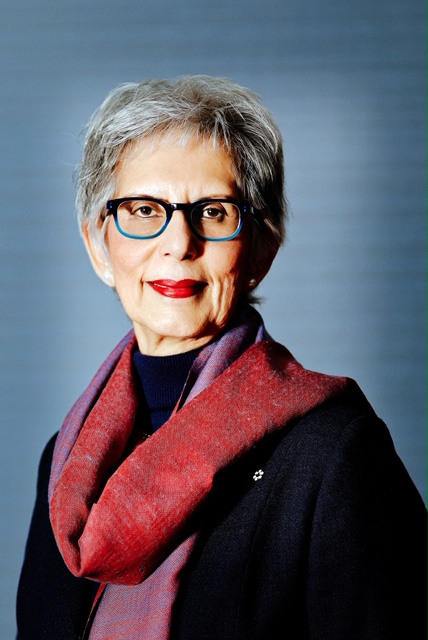Today’s guest blog comes from Nurjehan Mawani, reflecting on her experiences as an immigrant to Canada from Kenya, the importance of diversity and inclusion, and her thoughts on what effective action against racism looks like:
Nurjehan Mawani is the former Chair of the Immigration and Refugee Board of Canada and Commissioner of the Federal Public Service Commission. She has recently returned home to Vancouver having served in Central Asia and Afghanistan as the Diplomatic Representative of the Aga Khan Development Network. She is a recipient of the Order of Canada.

Like many Canadians, I have been grappling with the recent events of racism that have taken place here at home and south of the border. These manifestations— ranging from microaggressions to fatal acts of violence— have forced us to pause and be introspective, encouraging each one of us to take stock of our values and reaffirm the inclusive and pluralistic Canada in which we want to live. There has been an outpouring of emotion, pain, anger and frustration in our streets, boardrooms and town halls, demanding justice and reconciliation, as Canadians from all walks of life underline a common message: while words matter, actions matter even more.
Here at home, British Columbians are ‘unmasking racism’ and becoming more conscious of the legacy of systemic discrimination and inequities towards Indigenous Peoples and visible minorities. There is a growing consensus around the role of government to make a difference echoed in the recent Parliamentary Black Caucus statement on anti-Black racism calling to “make our public administration more effective and resilient by ensuring it actually reflects the diversity of the public it serves.” Such recommendations to remove barriers and address opportunity gaps form part of a larger historical narrative, one that takes me back 34 years ago when I first began my career in public service in Vancouver.
Over the years, it has taken leadership and deliberate policies to advance the participation and inclusion of underrepresented groups, particularly in the public sector. These include the Employment Equity Act of 1986 and Embracing Change (2003), a government-wide initiative specifically targeted to redress the underrepresentation of visible minorities. I still remember, as a Commissioner of the Public Service Commission, the skepticism that proactive hiring practices would undermine the merit principle and citizens’ equal employment access. We knew we had to meet this criticism head-on and advance the position that inherent in the concept of merit is the notion of equity and access to opportunity. We also knew historically that to correct conditions of disadvantage and to enhance fairness, special measures to ensure substantive equality were necessary.
Growing up in colonial Kenya, I was acutely aware of the inequities around me. Schools, hospitals and even restaurants were segregated; differences were not just highlighted but exploited. Ultimately, Canada’s outlook of openness and respect was a key pull factor in our family’s decision to immigrate here from the UK and make Canada our permanent home almost 40 years ago. Like many new Canadians arriving in the 1970s, I encountered conscious and unconscious bias both in my personal life and professionally as I rose through the ranks of the federal Public Service. In 1992, when I assumed the role of Chair of the Immigration and Refugee Board (IRB) Canada’s largest independent tribunal, I experienced first-hand the demeaning effect of words and comments, explicitly questioning why a woman born in Africa had to tell us how to manage our immigration and refugee policies. At the same time, there were many Canadians who applauded the government’s decision to appoint the first woman and visible minority in this position. The Board continued to become more diverse, broadening the Institution’s outlook including an understanding of cultural contexts to inform best practices.
As I reflect on the racist targeting Asian Canadians during the current pandemic, it has sadly reminded me of the experience of Muslim Canadians in the wake of 9/11. While we as Canadians are committed to diversity and inclusion, we have also seen how quickly a sense of vulnerability reveals our prejudices and fears. Now is not the time to retreat into our comfort zones nor is it the time to be complacent. It will require both individual and collective vigilance on our part to counter this through the act of active citizenship, reinforcing the ideals of acceptance and sense of belonging for all. We must choose every day to challenge stereotypes, fight bias, broaden perceptions, improve access to justice and uphold human dignity. I am proud to join Lieutenant Governor Janet Austin in support of the #DifferentTogether Pledge, reaffirming that our BC holds diversity as a fundamental value and one of our greatest strengths.

